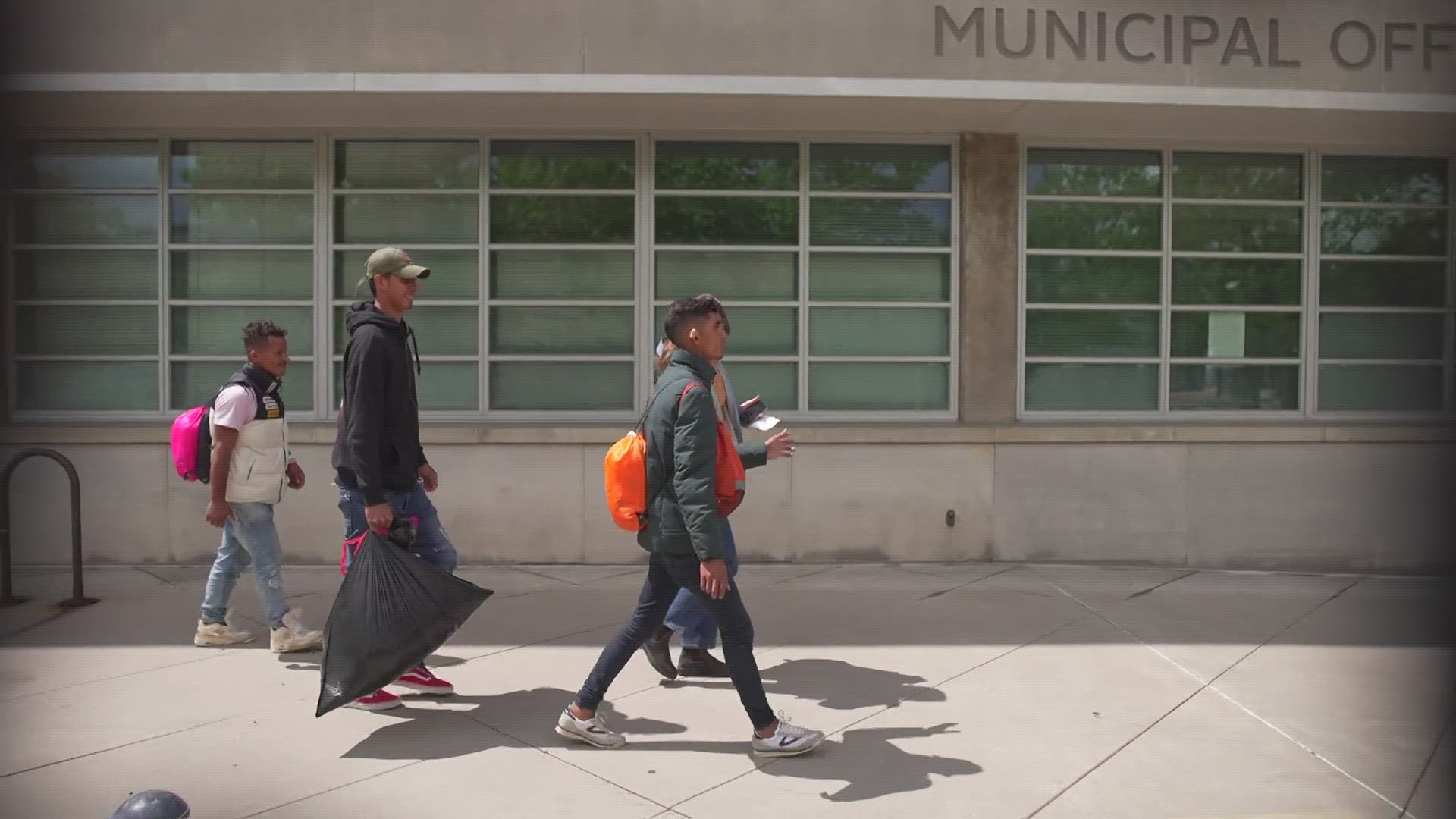DENVER — It’s been one week since Denver Human Services (DHS) changed their length of stay policies because of the latest influx of migrants.
Denver has served more than 21,000 people, and the October daily average of arrivals is almost 300. The daily average of arrivals in September was 125. This latest influx marks the third overall, and has cost Denver $26 million.
Denver is now home for Brandon Diaz. Diaz came from Colombia because the violence is very strong. Like thousands of others, he's hoping to find shelter in Denver, and work.
“We are at over 3,000 people, we received 250, 260 individuals yesterday,” said Jon Ewing, the spokesperson for DHS. “It is a significant strain right now.”
DHS changed their length of stay policies because of the latest influx of migrants. Individual adults used to be allowed to stay 21 days, now they're down to 14.
“14 is actually what it was for several months,” Ewing said.
Diaz said he is just happy to get any help he can. He said the road is very dangerous so the shelters are important to him.
“For families though, conversely, we have gone from 30 days to 37 days,” Ewing said. “We understand they need a little more time, they need as much time as we can give them.”
The new system allows DHS to process the influx of migrants more quickly.
“It's a necessary thing, but at the end of the day our systems are strained, we can't provide limitless shelter,” Ewing said. “We try to make those expectations clear and help them in other ways.”
More migrants means more shelters, which require more staff.
“You can't open another shelter until you have the staffing to open up another shelter,” Ewing said. “You could have all the money in the world, we don’t, but you could have all the money in the world, and if you don’t have the staff it doesn’t really matter," Ewing said.
DHS said Boulder has been a big help, but they are calling on other cities on top of their own to step up.
“We are asking Denver employees to step up, and paying them overtime, time and a half, to help staff up these shelters,” Ewing said.
DHS is asking for more cities to help them, so they can help more people like Diaz. Diaz said he wants to get a job.
“They understand how to navigate their next steps already,” Ewing said. “It’s amazing how many of them find work, people have utilized the support we have given them for sure.”
DHS also provides medical support, other services and connections to nonprofits for more help.
Cities interested in providing temporary shelter for migrants can contact Adam Paul, the director of regional affairs for the Denver mayor’s office, at adam.paul@denvergov.org.
Denver is also calling on the community to donate much needed winter items, like hats, scarves, socks and gloves in all sizes. Donations can be delivered to the Richard T. Castro Human Services Center at 1200 N. Federal Boulevard.
SUGGESTED VIDEOS: Latest from 9NEWS

